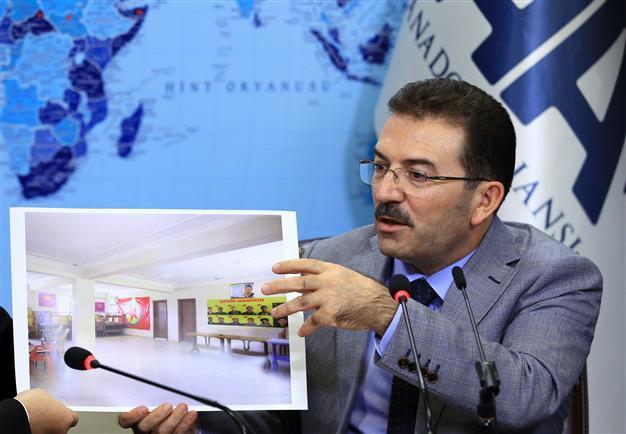Up to 400,000 security forces, including military, taking measures for election security in Turkey
ANKARA

AA Photo
Almost 400,000 security forces, including units from the Land Forces Command, have been taking measures to provide security before the Nov. 1 snap election amid continued clashes between security forces and militants of the outlawed Kurdistan Workers’ Party (PKK), Interior Minister Selami Altınok has stated.“We are taking measures regarding election security with our 385,000 security forces. Around 255,000 of them are police forces and 130,000 are gendarmerie forces reinforced by the Land Forces personnel,” Altınok said on Oct. 5.
At present, 231 residential areas in 22 provinces have been declared either as “special security zones” or as “military forbidden zones,” Altınok told the state-run Anadolu Agency.
Turkey’s crackdown on the PKK began in July after a two-and-a-half-year ceasefire collapsed, and it has escalated ahead of the repeat election on Nov. 1.
Daily clashes have so far killed more than 120 security personnel and hundreds of militants in the predominantly Kurdish-populated east and southeast of Anatolia.
Speaking on Oct. 4, President Recep Tayyip Erdoğan labeled the Supreme Election Board (YSK) wrong to reject calls to relocate ballot boxes in several eastern and southeastern districts, saying such a move would be responsible for any undesired consequences.
“This is where the YSK is on the wrong track. It is the district election authorities that must determine the voting neighborhoods in the districts. The YSK is not interested in this,” Erdoğan said.
“I hope we will not come across the problems we encountered during the June 7 election. If so, the YSK will be responsible,” he added.
A majority of votes at the YSK rejected calls for the relocation of ballot boxes in a number of districts. The YSK’s decision came after a number of local election councils in eastern and southeastern Turkey asked for polling stations to be moved in certain neighborhoods due to security concerns amid the deadly renewed conflict between security forces and militants of the PKK.
The YSK also rejected an Interior Ministry application asking for time until Oct. 7 in order to complete a risk analysis of the areas in question.
The legality and legitimacy of increased curfews and temporary security zones, which can be imposed for up to six months, have recently been widely questioned by international human rights observers, voicing concerns over the prospect of holding a free election on Nov. 1.
Among them, Human Rights Watch’s senior Turkey researcher Emma Sinclair-Webb has argued that many people make their livelihood in the affected regions and she is concerned about the stringent powers imposed in the zones.
“If you do not leave the zones, you are liable for prosecution. There is no security of life within the zones. The press cannot be in those areas and you cannot have freedom of expression there. You also cannot have freedom of movement and there is a big risk of the arbitrary use of power against citizens, which could be very abusive,” Sinclair-Webb told Voice of America on Sept. 28.
She also underlined that local governors, in consultation with the military, are imposing the security zones with no published criteria of use and no parliamentary supervision.
















